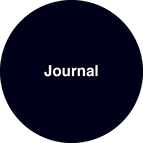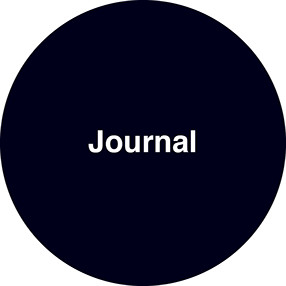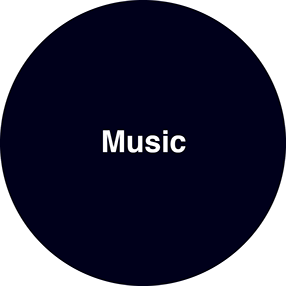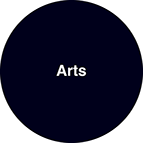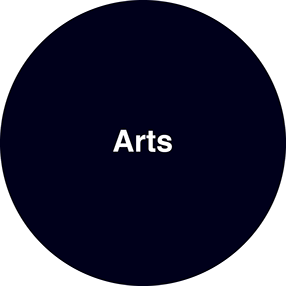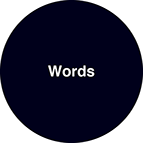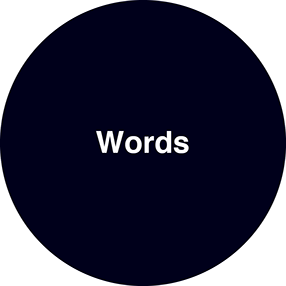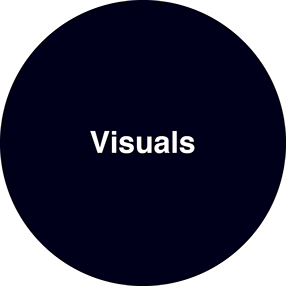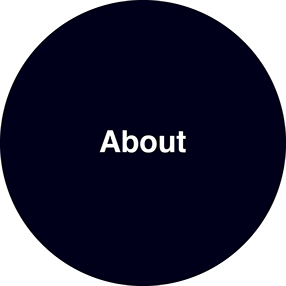Stand
and
unfold
yourself
Le miró y le rodeó el cuerpo
con una cadena... Todo parecía igual que antes, pero todo era diferente...
Como si naciera por primera vez.
About myself
Il dut entendre quelque chose. Il la regarda. Du moins son regard se posa sur elle et elle ébaucha un sourire. Les yeux de l'homme la fixaient avec une insistance qui aurait dû paraître insolente; mais il ne la voyait pas. Elle ne savait pas ce qu'il voyait, et pendant un moment elle pensa : est-ce que je n'existe pas ? N'est-ce pas moi ? Une fois elle avait vu ces yeux, quand son père tenait sa main, couché sur son lit, avec un râle au fond de la gorge; il tenait sa main et elle n'avait plus de main. Elle resta figée sur place, sans voix, sans visage, sans vie : une imposture. Et puis elle reprit conscience; elle fit un pas. L'homme ferma les yeux. Si elle n'avait pas bougé, il lui semblait qu'ils seraient demeurés face à face pendant l'éternité.
(From "Tous les hommes sont mortels" by Simone de Beauvoir).
A él le pareció oír algo. La miró. Al menos su mirada se posó sobre ella y ella esbozó una sonrisa. Los ojos del hombre la miraron con una insistencia que hubiera debido parecer insolente; pero seguía sin verla. Ella no sabía lo que él veía y durante un momento pensó: "¿Acaso no existo? ¿No soy yo?". Una vez había visto esos ojos, cuando su padre le oprimía la mano, tendido en una cama, con un estertor agónico en el fondo de la garganta; oprimía su mano y era como si ella no tuviera mano. Permaneció petrificada, sin voz, sin rostro, sin vida; una impostura. Luego recobró la conciencia: dio un paso. El hombre cerró los ojos. Se le antojaba que si ella no se hubiera movido habrían permanecido frente a frente para siempre jamás.
(De "Todos los hombre son mortales" de Simone de Beauvoir).
About my home
Waking up begins with saying am and now. That which has awoken then lies for a while staring up at the ceiling and down into itself until it has recognised I, and therefrom deduced I am, I am now. Here comes next, and is at least negatively reassuring; because here, this morning, is where it had expected to find itself; what's called at home.
(From "A Single Man" by Christopher Isherwood).
Despertar comienza al decir soy y ahora. Eso que ha despertado permanece entonces por un momento mirando fijamente hacia arriba, al techo, y hacia abajo, dentro de sí mismo, hasta que ha reconocido yo, y de ahí deduce yo soy, yo soy ahora. Aquí viene después, y es como mínimo negativamente tranquilizador; porque aquí, esta mañana, es donde hubiera esperado encontrarse a sí mismo; lo que se llama en casa.
(De "Un Hombre Soltero" de Christopher Isherwood).
About my land
Whitcross is no town, nor even a hamlet; it is but a stone pillar set up where four roads meet: whitewashed, I suppose, to be more obvious at a distance and in darkness. Four arms spring from its summit: the nearest town to which these point is, according to the inscription, distant ten miles; the farthest, above twenty. From the well-known names of these towns I learn in what county I have lighted; a north-midland shire, dusk with moorland, ridged with mountain: this I see. There are great moors behind and on each hand of me; there are waves of mountains far beyond that deep valley at my feet. The population here must be thin, and I see no passengers on these roads: they stretch out east, west, north, and south—white, broad, lonely; they are all cut in the moor, and the heather grows deep and wild to their very verge. Yet a chance traveller might pass by; and I wish no eye to see me now: strangers would wonder what I am doing, lingering here at the sign-post, evidently objectless and lost. I might be questioned: I could give no answer but what would sound incredible and excite suspicion. Not a tie holds me to human society at this moment—not a charm or hope calls me where my fellow-creatures are—none that saw me would have a kind thought or a good wish for me. I have no relative but the universal mother, Nature: I will seek her breast and ask repose.
(From "Jane Eyre" by Charlotte Brontë).
Withcross no es un pueblo, ni siquiera una aldea, sino simplemente un cruce de cuatro caminos señalado por un hito de piedra pintada de blanco, supongo que para facilitar la visibilidad desde lejos cuando está oscuro. Del remate de esta piedra surgen cuatro letreros a modo de ramas. Según sus inscripciones, el pueblo más cercano se encuentra a diez millas y el más lejano a veintitantas. Por los nombres de estos pueblos —que me son conocidos— me entero del condado donde he venido a parar, y que ahora estoy pisando. Se trata de una región situada al norte de la zona central, oscurecida por páramos y rematada por una cordillera. Lo estoy viendo con mis propios ojos. Los inmensos páramos se extienden a mi espalda y a ambos lados de mi cuerpo, mientras las onduladas crestas montañosas se divisan allá al fondo, una vez cruzado el valle que duerme a mis pies. Debe de tratarse de una zona más bien despoblada, y por los caminos anchos y blancos que se dispersan en todas direcciones no veo transitar a nadie; parecen tallados en el páramo, y los tupidos brezales silvestres bajan hasta su cuneta. Pero, a pesar de tanta soledad, puede darse que aparezca algún transeúnte y yo no querría por nada del mundo que alguien me encuentre. Si se me acercara un viajero, podría preguntarme que qué hago aquí dando vueltas alrededor de este hito de la encrucijada, evidentemente extraviada y sin saber qué rumbo tomar. Muchas cosas podría preguntarme y yo a ninguna sabría dar respuesta que no pareciera inverosímil o no despertara sospechas. No tengo en este momento una sola atadura con los seres humanos, ningún aliciente esperanzador me llama al encuentro de mis semejantes y nadie que me viese me dedicaría un poco de atención o un buen deseo. No tengo más familiares que nuestra madre universal: la Naturaleza. Buscaré reposo contra su regazo.
(De "Jane Eyre" de Charlotte Brontë).

-01-layer%201.png?crc=6408663)
-01-layer%201_2x.png?crc=4043779628)
